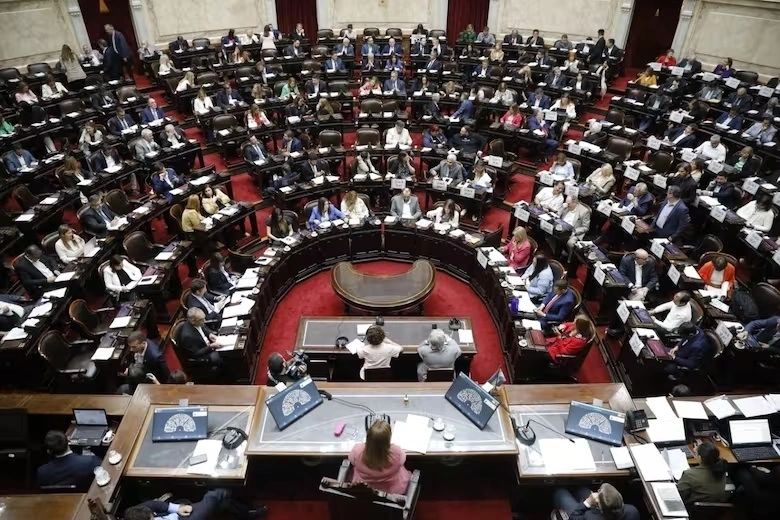BuySellBA
Administrator
What are the tax benefits for landlords with the change in the rental law? - La Nación Propiedades

Source:

 www.lanacion.com.ar
www.lanacion.com.ar
October 27, 2023
Changes to rental law include tax benefits for landlords and some also reach tenants

Changes to rental law include tax benefits for landlords and some for tenants as well
It came into effect on Wednesday, October 18. Contracts signed after that date will be governed by the new rental law . The publication in the Official Gazette of the changes approved by Congress establishes the variants introduced to law 27,551 by senators and deputies.
There are two key changes in relation to the new contracts : now the rents will have an adjustment every six months - before it was once a year - and the percentage of this increase will be based on the Own Home coefficient. The duration will continue to be three years, but the Central Bank's ICL and its annual adjustment no longer apply. The new index to be applied is based on the lowest indicator between the average of the salary variation of the last year and the average of inflation during the same period.

Tax aspects such as incentives for owners linked to Personal Assets, monotax, Income Tax and check tax were included in the new law.
Other changes introduced by the new rule are the elimination of the possibility of requesting payment of months in advance to the tenant by the owner; the requirement that rental advertisements be made in national currency (pesos); and those related to tax aspects such as incentives for owners linked to Personal Assets, monotax, Income Tax and check tax .
These benefits were created effective for fiscal years 2023 and beyond. “For the monotax there is no annual fiscal year or annual fiscal period and it could be interpreted that the modification is retroactive to January 1, 2023,” clarified tax expert Sebastián Domínguez and details the specific changes, point by point .

Session in deputies to discuss the modification of the rental law

The tax expert Sebastián Domínguez raises some doubts in the application of the benefit over the monotax
www.buysellba.com

Source:
Cuáles son los beneficios impositivos para los propietarios con el cambio de la ley de alquileres
Los cambios a la ley de alquileres incluyen beneficios impositivos para los propietarios y algunos también alcanzan a los inquilinos
October 27, 2023
Changes to rental law include tax benefits for landlords and some also reach tenants

Changes to rental law include tax benefits for landlords and some for tenants as well
It came into effect on Wednesday, October 18. Contracts signed after that date will be governed by the new rental law . The publication in the Official Gazette of the changes approved by Congress establishes the variants introduced to law 27,551 by senators and deputies.
There are two key changes in relation to the new contracts : now the rents will have an adjustment every six months - before it was once a year - and the percentage of this increase will be based on the Own Home coefficient. The duration will continue to be three years, but the Central Bank's ICL and its annual adjustment no longer apply. The new index to be applied is based on the lowest indicator between the average of the salary variation of the last year and the average of inflation during the same period.

Tax aspects such as incentives for owners linked to Personal Assets, monotax, Income Tax and check tax were included in the new law.
Other changes introduced by the new rule are the elimination of the possibility of requesting payment of months in advance to the tenant by the owner; the requirement that rental advertisements be made in national currency (pesos); and those related to tax aspects such as incentives for owners linked to Personal Assets, monotax, Income Tax and check tax .
These benefits were created effective for fiscal years 2023 and beyond. “For the monotax there is no annual fiscal year or annual fiscal period and it could be interpreted that the modification is retroactive to January 1, 2023,” clarified tax expert Sebastián Domínguez and details the specific changes, point by point .

Session in deputies to discuss the modification of the rental law
Monotax I
One of the requirements to be able to join the monotax is not to exceed three simultaneous activities or not to have more than three operating units. Each property is considered a different operating unit, even when the property rental activity is a single one. “As of the modification, as long as the property leasing contracts are duly registered with the AFIP , they will be considered as a single operating unit, regardless of the number of properties affected by that activity,” explained Domínguez.Monotribute II
The law establishes that income coming exclusively from the rental of up to two properties will be exempt from paying the monotax . But Domínguez analyzed that it is not clear what the exemption from paying the monotax is, given the different situations that may arise. If the taxpayer only rents two properties and is within the income parameters, that is, it does not exceed $7,996,484.12, it can be considered that the monotax fee should not be paid. “But if a taxpayer also carries out other activities, given that the monotax fee is unified, will it be determined that a part of the fee should not be paid? Will it be proportional to income? We understand that the reform should have indicated that income coming exclusively from the leasing of up to two properties should not be considered income for the purposes of categorization instead of exempting from the monotax," analyzes the tax expert, who clarifies that we will have to wait until Learn about the regulations to see how this exemption is implemented.
The tax expert Sebastián Domínguez raises some doubts in the application of the benefit over the monotax
Personal property
Real estate intended for residential use, with contracts duly registered in AFIP , are exempt from the Personal Property Tax when the value of each of them is equal to or less than the amount established in the second paragraph of article 24. “ The law does not establish a limit on the number of properties for the exemption, but rather limits it based on their valuation. For the 2022 fiscal period, the amount indicated was $56,410,705.41. This amount must be adjusted for the variation in the Consumer Price Index (CPI) prepared by the INDEC for October 2023 / October 2022," Domínguez explained and explained that "according to the estimates we made, said value would be above $142,000,000 by 2023″.Tax on debits and credits
Credits and debits in savings accounts or bank checking accounts used exclusively for operations inherent to the activity of leasing properties for residential purposes, whose contracts are registered in AFIP, are exempt from tax . This exemption applies to all types of taxpayers, not only to humans. Domínguez shared an example: if a SA allocates a checking account for exclusive use of the activity of leasing real estate for residential use and registers it in the AFIP, it would enjoy the exemption. “We will have to analyze the cost/benefit of bank expenses for opening the account versus the tax exemption. On the other hand, it is important to mention that a landlord, a human person who receives the rent by transfer in a savings account, currently does not pay the debit and credit tax, for which he does not receive any additional benefit,” he analyzed.Income Tax
It is allowed to deduct 10% of the total annual amount of property rentals for residential purposes , both for the landlord and the tenant. Both parties, tenant and owner, may use this deduction in addition to other deductions that exist. The law does not differentiate between landlords, which is why the 10% deduction may be computed by individuals, undivided estates and legal entities.www.buysellba.com

